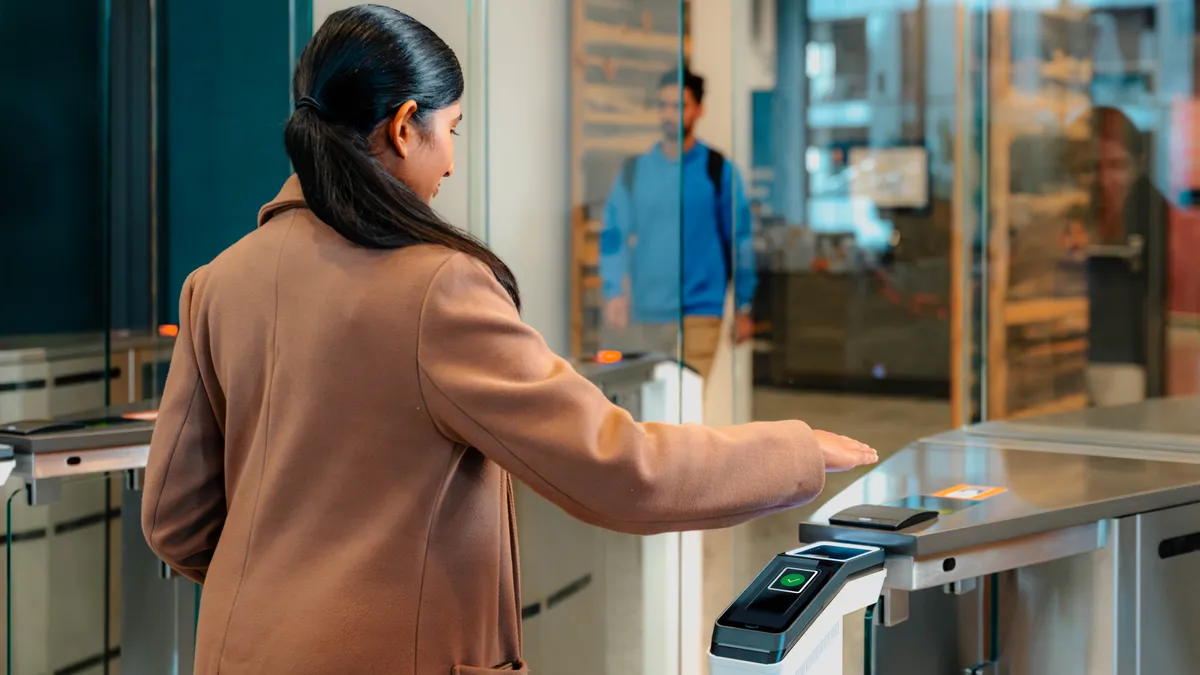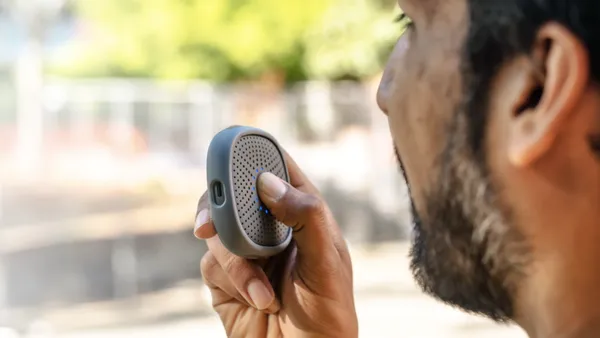Dive Brief:
- Amazon Web Services unveiled a palm-based identity service for user authentication for access to physical locations and digital assets, according to a Nov. 27 release.
- The new contactless service, Amazon One Enterprise, aims to improve organizational security and prevent costly security breaches in facilities including data centers, office buildings, airports, hotels, resorts and residential structures as well as those related to digital assets like financial data and HR records, AWS said.
- The service delivers an accuracy rate of 99.99%, the company said. By replacing the need for multiple authentication methods, it creates “new levels of convenience for employees” when accessing spaces and software, it said.
Dive Insight:
The launch comes at a time of increased physical and digital security concerns. Since September, facilities-related firms including Johnson Controls, Okta and Stanley Steemer have reported experiencing data breaches. As the security of physical facilities increasingly depends on technological controls, organizations must address vulnerabilities in the digital environment to ensure the security of physical premises, Info Tech Research Group said in a report earlier this year.
Many organizations today rely on physical security methods like badges and fobs or digital methods like PINs and passwords, but these share common security vulnerabilities, AWS says: Badges can be lost, shared, cloned or stolen, while PINs and passwords are easily forgotten, guessable or shared.
Despite organizations trying to solve these challenges through biometric-based solutions such as iris scanning or fingerprint recognition, these solutions are not always accurate, AWS says, and they fail to “break silos in the implementation and management of user authentication.”
Amazon One Enterprise provides access control through biometric identification based on palm and vein imagery, using artificial intelligence to create a palm signature associated with identification credentials like badge numbers, employee IDs, or PINs, AWS said. The unique numerical vector created from the user’s palm image cannot be replicated or used for impersonation, it said, and administrators can manage all aspects of user authentication in the console.
The goal is “to deliver a highly accurate identification service that increases an organization’s overall security, while offering seamless authentication management with lower operational overhead,” Dilip Kumar, vice president of AWS applications, said in the release.
Security systems manufacturer Boon Edam, IHG Hotels and Resorts, security firm Paznic and KONE, a provider of elevators and escalators, are among the first customers and partners using Amazon One Enterprise, according to the release.














